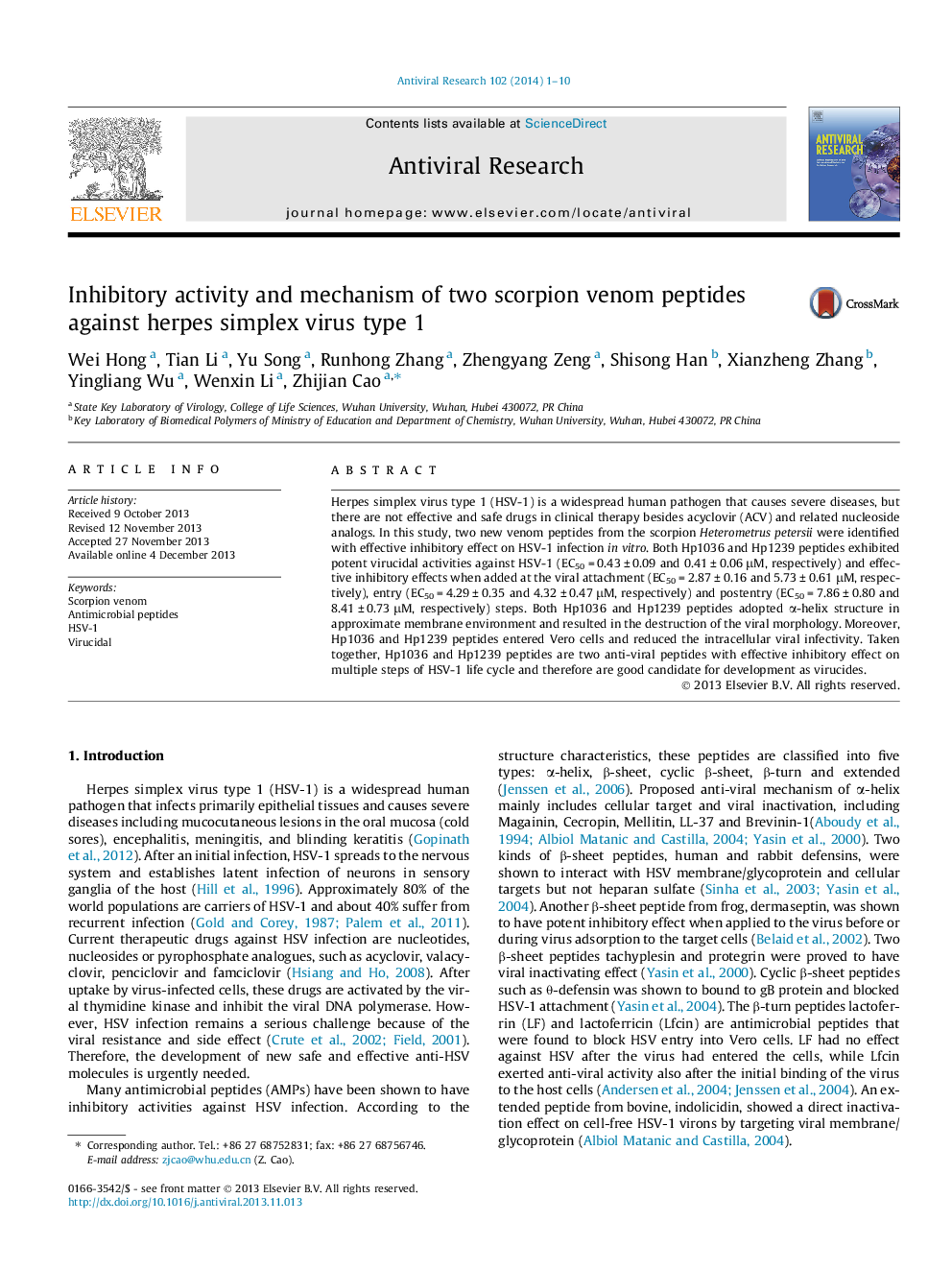| Article ID | Journal | Published Year | Pages | File Type |
|---|---|---|---|---|
| 2509926 | Antiviral Research | 2014 | 10 Pages |
•Hp1036 and Hp1239 are two new cationic host defense peptides from scorpion venom.•They inhibitory effect on multiple steps of HSV-1 life cycle.•They adopted α-helix structure in approximate membrane environment.•They are virucidal of HSV-1 and destroyed the morphology of HSV-1.•They easily entered Vero cells and reduced the intracellular viral infectivity.
Herpes simplex virus type 1 (HSV-1) is a widespread human pathogen that causes severe diseases, but there are not effective and safe drugs in clinical therapy besides acyclovir (ACV) and related nucleoside analogs. In this study, two new venom peptides from the scorpion Heterometrus petersii were identified with effective inhibitory effect on HSV-1 infection in vitro. Both Hp1036 and Hp1239 peptides exhibited potent virucidal activities against HSV-1 (EC50 = 0.43 ± 0.09 and 0.41 ± 0.06 μM, respectively) and effective inhibitory effects when added at the viral attachment (EC50 = 2.87 ± 0.16 and 5.73 ± 0.61 μM, respectively), entry (EC50 = 4.29 ± 0.35 and 4.32 ± 0.47 μM, respectively) and postentry (EC50 = 7.86 ± 0.80 and 8.41 ± 0.73 μM, respectively) steps. Both Hp1036 and Hp1239 peptides adopted α-helix structure in approximate membrane environment and resulted in the destruction of the viral morphology. Moreover, Hp1036 and Hp1239 peptides entered Vero cells and reduced the intracellular viral infectivity. Taken together, Hp1036 and Hp1239 peptides are two anti-viral peptides with effective inhibitory effect on multiple steps of HSV-1 life cycle and therefore are good candidate for development as virucides.
